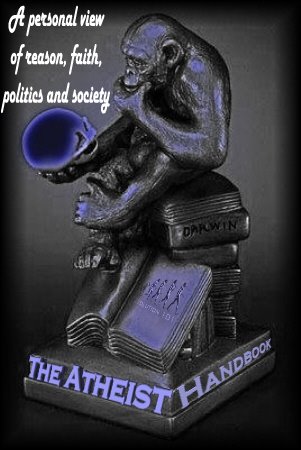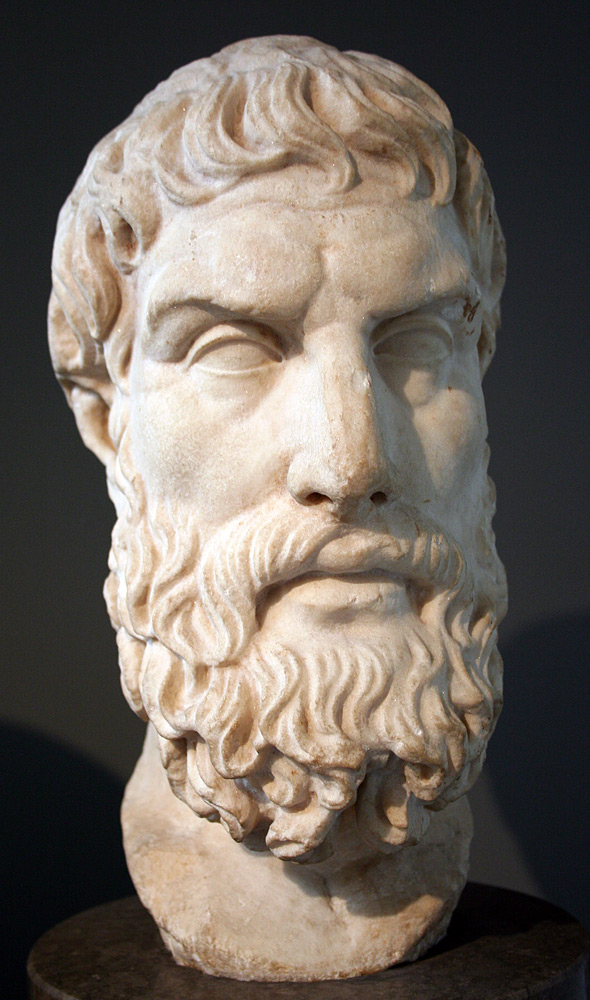
- The doors of heaven and hell are adjacent and identical.
- Nikos Kazantzakis -The Last Temptation of Christ
- Nikos Kazantzakis -The Last Temptation of Christ
Mother Teresa was human after all.
A fairly plain and almost stupidly obvious thing to say isn't it? Of course she was. She was no different than you or I really. No different in most respects to anyone else who ever walked and breathed.
Yet to many, she was more. Or rather, they NEED her to be more. Desperately. Badly. They need, to this day, for that frail old lady to be a saint. A conduit to the almighty sky god. A bridge to touch that which they cannot touch themselves. Through her, they saw physical confirmation of their faith. Perhaps the only concrete example of their faith.
So one can easily imagine the shock the faithful must have felt with the recent exposure of Teresa's private letters. Letters she wanted destroyed upon her death - and you can easily understand why once you read what was in them.
Far from being an icon of rock steady faith, and so proof of the power of faith itself, she was a woman tormented by her own demons. For most of her life, nearly, she writes, since she began "the Work", Teresa was plagued by gut-wrenching doubts. Not the mamby pamby "how do you accept a loving god in the face of evil" type doubt. I mean really serious, "does god even exist, and have I wasted my own life" type doubts.
Even for a non-believer like me, reading her letters is moving - but not in way that makes me want to go to church. I mean that this was a woman who, because she has such trouble believing the whole Catholic thing, hated herself for it.
She went on with the work of her religious order all the while harboring private thoughts like these:
"What do I labor for? If there be no God—there can be no soul—if there is no Soul then Jesus—You also are not true.”
"“Such deep longing for God—and … repulsed—empty—no faith—no love—no zeal.—[The saving of] Souls holds no attraction—Heaven means nothing.”"
"So many unanswered questions live within me afraid to uncover them—because of the blasphemy—If there be God—please forgive me—When I try to raise my thoughts to Heaven—there is such convicting emptiness that those very thoughts return like sharp knives and hurt my very soul.—I am told God loves me—and yet the reality of darkness and coldness and emptiness is so great that nothing touches my soul. Did I make a mistake in surrendering blindly to the Call of the Sacred Heart?”
We do not know, and cannot say, if Teresa ever resolved these doubts before she died. In referring to her public face as a "mask", it seems she was keenly aware of the hypocrisy of publicly witnessing for her church and privately doubting the whole ball of wax was even true. That kind of self-hate must be nothing short of agonizing. I can only speculate here, but one is struck with a sense that she felt trapped by the position in the world she crafted for herself and her innermost doubts. She could neither leave the life she made, or even admit to her theological misgivings. To do so would have shattered her legend, undone her order and rocked the church and many of the faithful.
Yet, in the face of all of this, what has been the reaction of the church and believers? "Oh," they say. "So she had doubts. Big deal. All Christians have doubts. Jesus had doubts. Thomas is called Doubting Thomas for a reason. That she had doubts just makes her a GREATER saint."
The pope said Sunday: "All believers know about the silence of God. Even Mother Teresa, with all her charity and force of faith, suffered from the silence of God."
This rationalization is so dishonest is just takes your breath away. It is an act of theological gymnastics and good old fashioned political spin control at work. It's pretty simple. Teresa is so important to the church that they want to fast track her into being a saint (which so far includes one bogus and debunked "miracle"), and continued the promotion of her as a living example of the glory of god. In short, too many people have invested too much for Teresa to be a human being. She has to be a perfect holy person. She has to be a saint.
So it doesn't matter that she tormented herself for dancing on the edges of disbelief. It doesn't matter that she, so far as we know, never resolved these matters one way or the other. Others will disregard what she has said and insist that she was perfect.
Take for example the ramblings of Faith Jonathan Morris, the Catholic priest who sometimes appears on Fox News. According to his recent op ed, only believers can understand what those letters really mean.
He writes of her statements: "While shocking to the faithless, these intimate words of your pain and sorrow as you reach out in vain for spiritual consolation, shimmer in crystal clear waters for those who, by no merit of our own, share the gift of faith. We understand now, as you did even in these dark nights, that God was testing and strengthening you in the crucible of suffering..."
Yup, her deep-seated and painful doubts were "strengthening" her. Her despair over not feeling god in her life for decades were a "test". It is impossible for Morris to take Teresa at her word. It is impossible to accept that if she believed at all, it is so difficult as to crush her spirit. To Morris, her decades long inner suffocation represents shimmering pools of crystal clear waters that can only been seen by the faithful.
This is little more than medievalism, a pop version of Augustine's famous line "Seek not to understand that you may believe, but believe that you may understand." As if faith is a kind of child's decoder ring - like the ones you used find in cereal boxes. Only those who have it can really read the secret the message. So only those with the "gift of faith" have the capacity to understand the simple writings of a simple woman whose mind and spirit were trapped in a kind of feedback loop she appears to have been unable to escape.
But maybe it is not dishonesty at all. Maybe it is just willful blindness. Blind faith can make people ignore facts in many ways and perhaps this is just another symptom of that. They need Teresa to be something that, perhaps, she was not. Because if she was not, if a titanic figure like Mother Teresa couldn't really believe, then where does that leave lesser people?
Further reading: http://www.msnbc.msn.com/id/20497111/site/newsweek/















